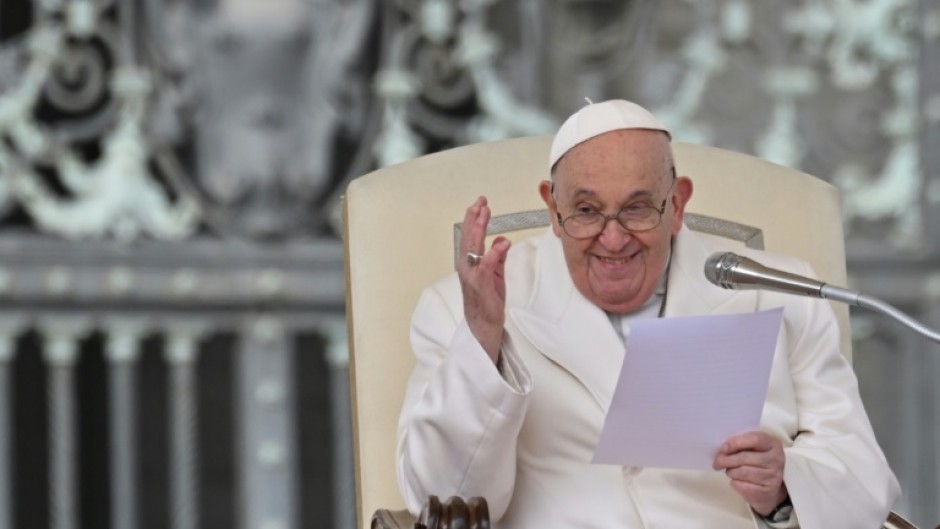From being "dazzled" by a beautiful girl to his role in Argentina's dictatorship, Pope Francis reviews his long life in his first autobiography -- and makes clear he is going nowhere.
In "Life: My Story Through History," to be published next week, the 87-year-old is in storytelling mode, joking around while also sharing personal anecdotes that have affected him deeply.
The Catholic Church nearly missed out on its first South American pope after a young Jorge Bergoglio was bowled over by a girl.
A first girlfriend, who worked in cinema, had not stopped Bergoglio from signing up to a seminary.
But the trainee priest was at an uncle's wedding when he was "dazzled" by a girl "so beautiful, so clever, it made my head spin", Francis told Italian journalist Fabio Marchese Ragona, who conducted the interviews for the short book.
"For a week I kept picturing her in my mind's eye, and found it difficult to pray. Fortunately it passed, and I was able to dedicate my mind and body to my vocation," he said.
Francis also talks about another big love: football.
There is an entire chapter devoted to the flamboyant striker Diego Maradona, whose infamous "hand of God" goal against England helped Argentina to World Cup victory in 1986.
"When, as pope, I received Maradona in the Vatican a few years ago... I asked him, jokingly, 'So, which is the guilty hand?'" he said.
From the early days of his papacy, Francis has called for the Church to become a more welcoming place, including for those deemed sinners -- a stance that has riled staunch conservatives within the centuries-old institution.
Three months after sparking an outcry by authorising the blessing of homosexual couples, the pope shrugs off accusations he is "destroying the papacy" and says he his deaf to the worst insults.
- Not slowing down -
"If I looked into everything that was said and written about me... I would need a weekly session with a psychologist!" he quipped.
He touches on the challenges of governing from the Vatican, which he describes as "the last absolute monarchy in Europe", where there are often "courtly arguments and manuevers... but such scheming needs to be defeated and abandoned once and for all".
And there is no point in his severest critics hoping Francis will follow his predecessor Benedict XVI's lead and step down. Despite his increasingly poor health, Francis insists he does "not have any cause serious enough to make me think of resigning".
Resignation is a "distant possibility" that would be justified only in the event of "a serious physical impediment", he said.
There is no sign he is slowing down either: despite undergoing an abdominal operation in 2023 and suffering from repeated cases of bronchitis in recent months, Francis's schedule is packed, with a long trip to Asia set for the end of the summer.
Marchese Ragona told AFP the interviews, which touch on key moments in history from the Cold War to the September 11 attacks, allowed Francis to set some things straight.
"Some people have said things that aren't true, so it was a pleasure to hear his history told in his voice," he said.
- 'I was clean' -
Francis talked about his role as head of the Jesuit order in Argentina from 1973 to 1979, during the country's brutal military dictatorship.
On his election to pope in March 2013, he was accused of not having done enough to help two Jesuit missionaries who were imprisoned, tortured and released during his leadership -- claims he rejected.
"The allegations against me continued until a short while ago, revenge on the part of leftists who knew perfectly well how opposed I was to atrocities like this," the former archbishop of Buenos Aires said.
"Many people have since told me privately that the Argentine government of the day had done its best to put a noose around my neck, but had found no evidence because I was clean," he said.
Marchese Ragona said Francis had "never given such details about that period" before, but the memoir had a wider purpose.
The pope wants it to be "useful in particular for young people, so that they can benefit from the stories of an elderly person," he said.
The memoir will be published in Italian, English, German and French editions next week.

